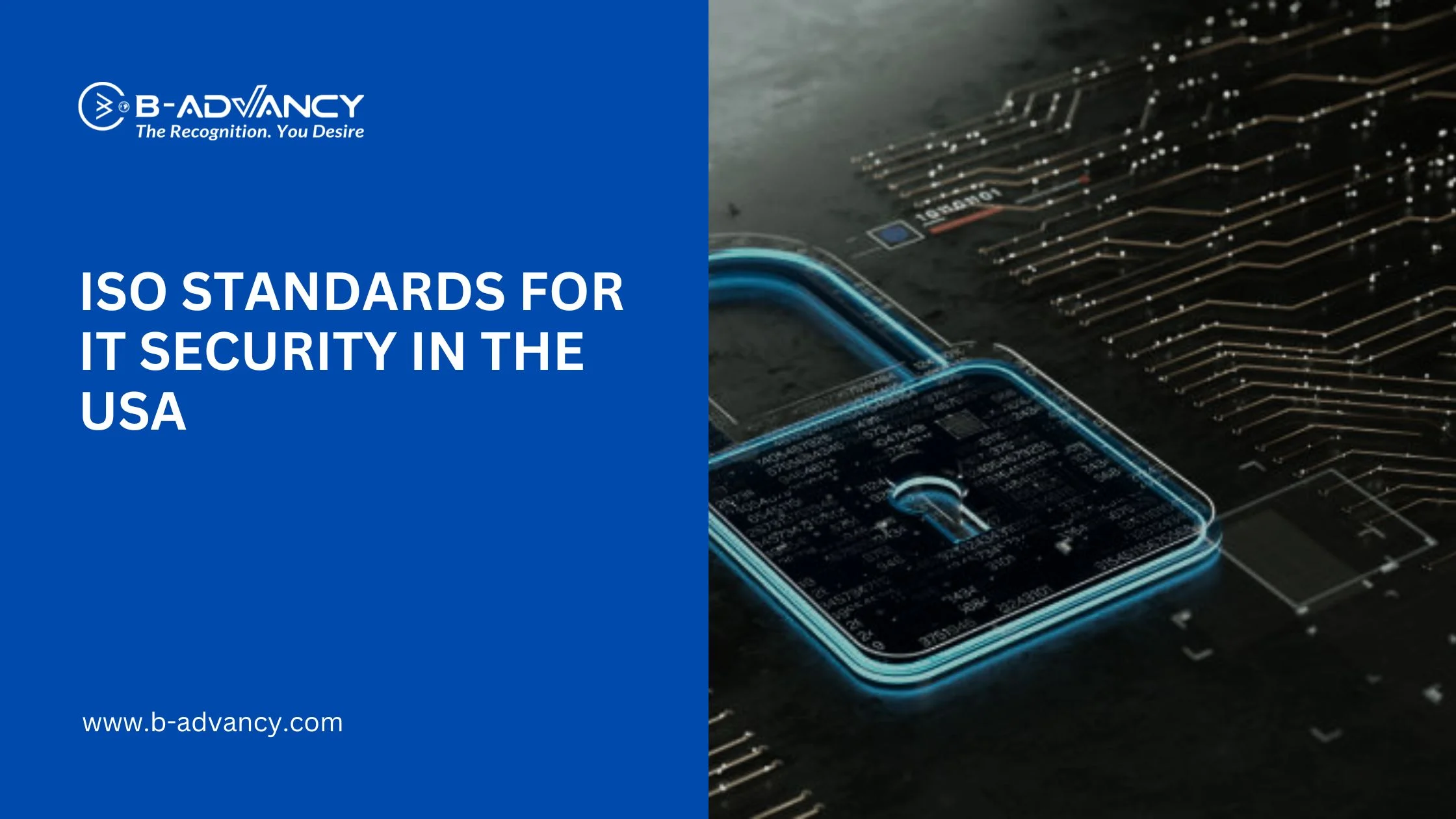
In this blog, we'll explore the key ISO standards for IT security that are favored in the USA and how they help businesses safeguard their data and systems.
1. ISO/IEC 27001: Information Security Management Systems (ISMS)
ISO/IEC 27001 is the most well-known and widely adopted ISO standard for information security. It specifies the requirements for establishing, implementing, operating, monitoring, reviewing, maintaining, and improving an Information Security Management System (ISMS).
Holistic Approach
ISO 27001 provides a systematic approach to managing sensitive company information, ensuring it remains secure. The framework involves risk assessment, implementing security controls, and continuous monitoring to manage and mitigate risks.
Global Recognition
As the global standard for ISMS, ISO 27001 is recognized worldwide, including in the USA, making it highly relevant for businesses that operate internationally.
Compliance
Adopting ISO 27001 helps organizations comply with other regulations and industry standards, such as GDPR, HIPAA, and SOC 2, which are often required by U.S.-based businesses.
Risk Management
A core part of the standard, focusing on identifying, assessing, and treating information security risks.
Security Controls
ISO 27001 outlines specific security controls to mitigate risks, covering areas like physical security, access control, cryptography, and incident management.
Continuous Improvement
The standard emphasizes the need for regular audits and improvements to ensure the effectiveness of the ISMS over time.
While ISO 27001 outlines the requirements for an ISMS, ISO/IEC 27002 provides best practice guidelines for implementing the security controls mentioned in ISO 27001. This is particularly useful for organizations looking to design and apply effective security measures.
Practical Guidance
ISO 27002 helps organizations understand how to practically implement the information security controls that ISO 27001 requires.
Comprehensive Coverage
It provides detailed advice on how to manage information security from a broad range of perspectives, including access control, cryptographic techniques, operational security, and supplier relationships.
Organizational Controls
Including the governance of information security, roles and responsibilities, and compliance.
Physical Security
Guidelines for protecting physical assets, such as securing hardware and restricting unauthorized access to facilities.
Operational Security
Best practices for managing day-to-day operations, ensuring secure use of technology, and responding to incidents effectively.
3. ISO/IEC 27018: Protection of Personal Data in the Cloud
With cloud computing becoming an essential part of modern business, ISO/IEC 27018 provides a specific focus on the protection of personal data in cloud environments. This standard is crucial for U.S.-based businesses that utilize cloud services and need to comply with various privacy regulations, such as the General Data Protection Regulation (GDPR) or the California Consumer Privacy Act (CCPA).
Cloud-Specific Focus
ISO 27018 ensures that personal data stored in the cloud is protected against unauthorized access, loss, or disclosure.
Privacy Compliance
This standard helps businesses meet the privacy and security requirements imposed by privacy laws and regulations in the USA and around the world.
Trust and Transparency
By adopting ISO 27018, organizations can demonstrate to customers and partners that they take data protection seriously.
As cyber threats continue to evolve, organizations must be prepared to respond to a variety of security risks. ISO/IEC 27032 provides guidance for improving cybersecurity, which includes protecting networks, systems, and data from cyberattacks. This standard is particularly relevant for companies in the USA that face rising threats in the digital landscape.
Cybersecurity Focus
Unlike other ISO 27000-series standards that focus more on information security management, ISO 27032 addresses broader cybersecurity concerns, including the security of critical infrastructure.
Collaborative Approach
The standard emphasizes collaboration between various stakeholders, such as government bodies, businesses, and individuals, to build a strong cybersecurity ecosystem.
Collaboration
Encourages organizations to collaborate on cybersecurity threat intelligence and incident response.
Network Security
Provides guidelines for securing networks, data transmission, and secure communications.
Incident Management
Includes strategies for responding to and mitigating cyberattacks.
5. ISO/IEC 27701: Privacy Information Management System (PIMS)
ISO/IEC 27701 is a privacy extension to ISO/IEC 27001 and ISO/IEC 27002. It provides guidelines for establishing, implementing, maintaining, and improving a Privacy Information Management System (PIMS), which is critical for organizations that handle personally identifiable information (PII).
Privacy Protection
This standard helps organizations manage privacy risks and ensure compliance with data protection regulations such as GDPR and CCPA.
Integrates with Existing ISMS
ISO/IEC 27701 integrates with ISO 27001, allowing businesses to align their information security and privacy management processes.
Data Protection
Establishes processes for collecting, storing, and sharing personal data while ensuring compliance with privacy laws.
Risk Assessment
Focuses on identifying and managing privacy risks related to PII.
Transparency
Ensures that organizations maintain transparency in how personal data is handled and processed.
For businesses in the USA, ISO standards offer a comprehensive and globally recognized framework for ensuring IT security and data protection. Whether through the implementation of an ISMS with ISO 27001, the adoption of privacy-focused controls with ISO 27701, or addressing cybersecurity challenges with ISO 27032, these standards help organizations manage risk, enhance resilience, and build trust with clients and partners.
Adopting ISO standards not only helps mitigate the risks of cyber threats but also ensures that businesses are compliant with various national and international regulations. By aligning their practices with these best practices, U.S.-based organizations can better safeguard their data and maintain a competitive edge in an increasingly complex digital landscape.